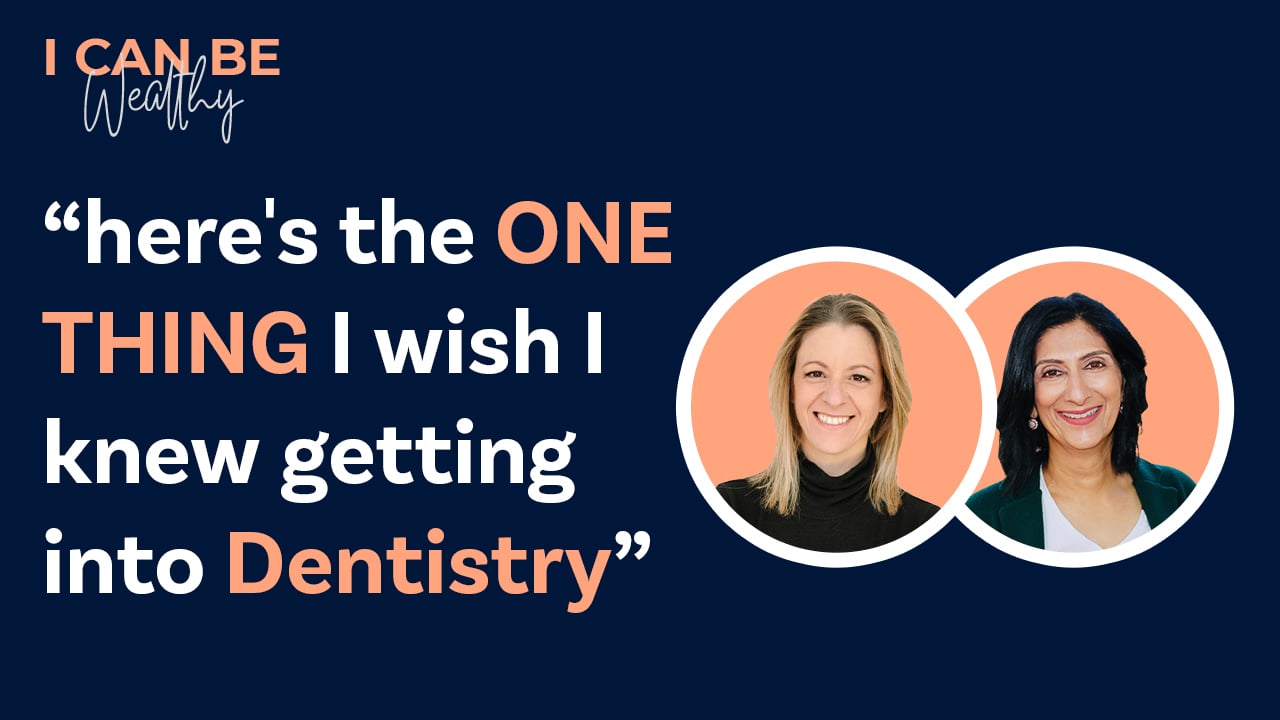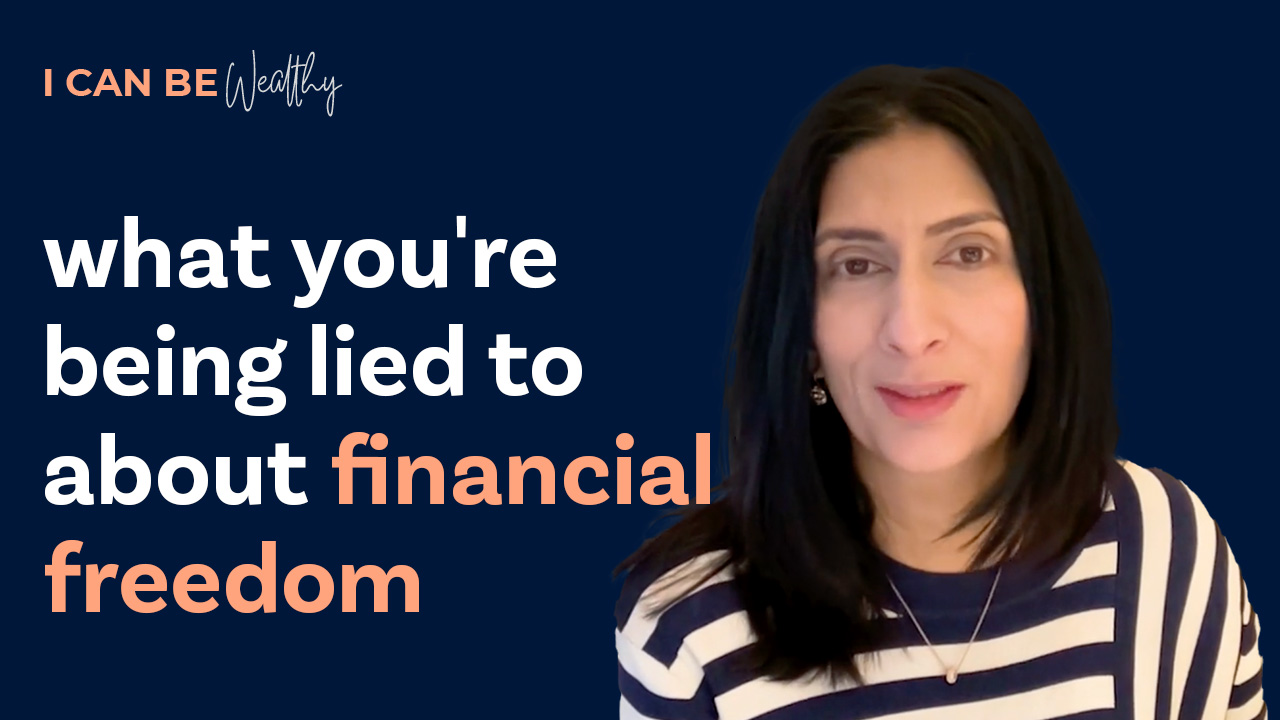The Two Sides of Inflation
The first thing I think that would be really useful for many people is actually understanding that inflation is perceived as both good and bad. It’s very easy for us to initially talk about inflation like it’s this terrible thing. But there are always two sides to the coin.
This topic came up in my monthly tribal meeting last week with my members and what I wanted to point out to people was that for some people, inflation signifies a struggling economy whereas, for others, people see it as a sign of a prospering economy. Now, a little bit of inflation is described as normal and healthy, and the government is constantly trying to pull levers in order to keep it at a certain level.
But unfortunately, sometimes economic reforms and ideas that the government have, don’t quite work out the way that they want.
What we want to be aware of as investors is that obviously, we can’t control those things, so the journey for us as investors is how do we make sure we position ourselves so that we minimise the vulnerabilities that we have, but also make sure that we position ourselves to take advantage of wealth building opportunities that inevitably present themselves when we have economic turbulence as we are entering a phase right now.
What is Happening in the World Today
In terms of what’s happening in the world today, last week, the Federal Reserve launched a high-risk effort to attain what has been described as the worst inflation since the early 1980s and they’ve talked about potentially increasing interest rates over the short term up to seven times over the next year.
Now, the Federal Reserve and other national government banks all around the world have pegged their interest rates near zero since the pandemic struck two years ago and it was inevitable that with the flurry of extra cash in the world, we were going to see some inflation. What the Federal Reserve is now saying is that they have a very difficult and narrow objective which is, “How do they raise borrowing costs enough to slow down the runaway growth and price hikes but tame the high inflation, not so much that it topples the economy into recession?”
Now, this is such a difficult job and I feel that if you look back historically at actions taken by the government to sort of manipulate or control things like this, they often overcorrect before they get it quite right. So there are lots of people in the world, lots of very smart economists who are talking about the yield curve of the bonds, things like that as being major indicators of recessions. But I think the point that I want to make is that it’s not that inflation directly causes recessions but it’s everything that goes on around that can trigger recessions if they’re overdone.
What Most Economists Are Worried About
So with that in mind, I think what most economists are worried about is that inflation is already obviously very high. We’ve seen it reach as high as 7.9% in February, which as I pointed out earlier, is the worst that it’s been in for decades and with things going on with Russia and Ukraine and gas prices going through the roof, experts in the economic field are definitely talking about potentially causing a recession.
So, higher interest rates will definitely reduce consumer spending on things that are interest-rate sensitive. For those of you who have been watching, I’ve certainly been watching with interest, the things like the car market, the second-hand car market, and the use of credit cards. Those trends should actually subside or reduce and eventually they’re hoping that these trends will reduce businesses’ demand for workers and then slow pay rises, and ease inflationary pressures.
So I think at the moment, the chair Powell noted that there are about 1.7 jobs on average available for every one unemployed person. So, there are a lot of people looking for stuff right now and having to compete on wages to get people to get labour and get bums on seats. So obviously, the Federal Reserve feels that the economy is robust enough to take the hit of those increased interest rates. But I think, there’s some common sense that needs to be applied here as well.
Unfortunately, I think whenever you start to mess with the economy, it’s not an exact science. It’s really a little bit of trial and error as to whether the global economy which will always be impacted by decisions made out of the US will be able to withstand seven rate hikes over the next 12 months or so is really unclear and a little bit like the way that entrepreneurs measure different metrics in the business.
There are the sinkhole lag measures, which means that we can take actions in our business today, but we don’t necessarily glean the full impact till some months later. I suspect it’s very similar to the economy. There are some things that the minute they’re announced, will have an immediate impact on consumers, their spending sentiment, things like that. But I think there’s also a series of things that probably happen a little while down the track, which is why it’s really difficult to predict with any great accuracy what any actions of any government will have on the economy. Clearly, things are a little bit beyond our control.
Potential Recessions
There were a number of commentators and economists that came out last week that is really being very gloomy about the future, talking about potential recessions beginning in the next three to six months. Effectively investors who are accustomed to being able to accumulate easy money, who’ve really enjoyed the crazy growth in real estate and shares and other rate-sensitive assets, understandably, are hoping that the government take action so that we have a very soft landing.
I know here in Australia and New Zealand, the government have definitely done as much as they can to have as minimal impact on the local economy, particularly real estate and certainly, even if we look back, as far as the global financial crisis, there were a lot of pre-emptive measures taken to prevent us from experiencing the full scale of recessions that many other economies around the world experience. I think things that are going to happen over the next two to five years are anyone’s guess. But there’s no way that we could have had the impact of something like the pandemic and not have repercussions.
Looking for Vulnerabilities in Your Portfolio
I think that unfortunately, the way that governments have responded to the pandemic over the last couple of years has certainly shielded many of us from harsh economic circumstances and a lot of the government stimulus and the subsidies and the handouts that came from many governments to stop our economies from completely disintegrating when necessary and now, we’re in a situation where we’re sort of bearing the repercussions of that.
So I think it’s certainly something to be aware of if you are an investor. I think you’ve really got to be looking at your portfolio from the place of, “Where are my vulnerabilities?”
Now, the most obvious vulnerable people in our economy are those first homebuyers for example that really pushed to buy a better class of real estate whether it’s an investment or otherwise and are now looking down the barrel of potentially higher interest rates which on one hand could just mean mortgage repayments which tipped them over the edge or potentially having to carry the very heavy load of negatively cash flowing investments.
Now, there are some statistics that were put out over the weekend which showed that in many countries, the percentage of households that are already experiencing stress as a result of what’s happening right now in terms of economic turbulence and the threat of rising interest rates. They’re already suffering, they’re already finding it really difficult to cope and if that’s the case, how are they going to survive seven rate hikes over the next potential twelve months to two years.
So they’re clearly the most vulnerable part of the market and when you’re a new investor, there’s just not too many things that you can do to insure against something like that other than keeping a super healthy cash reserve and being very mindful of creating a self-insurance around rising interest rates. For the rest of the investors who listen to this podcast, who are maybe further down the track who have either a portfolio of investments or are thinking more about how to navigate the turbulence, I think there are definitely some key takeaways to be had right now:
Key Takeaway #1: Cash is King
The first thing is something you’ve heard me speak about many times. Number one is cash is really king right now. Just as with early investors or first homeowners, keeping adequate cash reserves is really important. I think a play of any variety as an investor to hope for speculative or organic capital growth carries a much higher risk tag than usual. When I say that, what I mean is that I still hear about and I’m still seeing a lot of people investing from a place of fear of missing out or FOMO and paying for properties that are not really worth what they’re paying and often buying properties sight unseen, which by itself isn’t a risk.
But I would really be cautioning investors who are continuing to chase the market right now who are looking for deals where they’re going to get double-digit growth, year on year in the coming 12 to 24 months. That’s not to say that the market will tank, but I certainly think that putting all your eggs on those kinds of strategies doesn’t make sense to me. Now is the time for a defensive play.
Key Takeaway #2: Sustainability
This brings me to my second point, which is I would be personally limiting the amount of economic sensitivity in my portfolio right now, which is really an extension of that. To be defensive, I think what I tend to see, especially with less experienced investors is they’re looking for a home run on every single investment that they do. They’re looking for deals, which more than likely going to return them either a significant capital return or a significant cash return.
My suggestion is that this is a time more than any other to just be focusing on sustainability. I think the market is going to cause a lot of grief and a lot of pain for investors who are leveraged to the hilt. I think that volatility will start to show its face in many real estate markets and I think now is the time to be looking for the dull, boring bread and butter deals that just pay predictable cash flow or offer predictable growth through forced appreciation rather than speculation.
Sustainability is really the second key message that I want to drive home. It’s really hard when maybe you feel like you’re a bit behind. I know, I speak to a lot of investors who worry they haven’t taken enough action till now. They see what’s going on in the market and they feel like they have to make up for the lost time. But I still subscribe to the idea that you can turn your ship around, you just have to be patient. You certainly don’t want to rush investment decisions over the next five years simply to just get your foot in the market. So that would be the second thing.
Key Takeaway #3: Use of Leverage and Debt
I think the third and final piece, which I’ve already really touched on as an action step for people listening to this is, to look at your use of leverage and debt. And when I say that, I know that many investors like myself who own a lot of real estate, feel like the last five or so years have been pretty cushy. For a long time, the dialogue in the environment as well, interest rates are close to nil, and they’re not going to go anywhere in a hurry. But I think we’re suddenly at the beginning of a new journey where we should expect to see interest rates rise. Smarter investors have known that this environment wouldn’t stay like this forever. The banks are certainly tightening the screws in terms of their lending criteria. I’m experiencing that personally.
But unfortunately, if you’re new to investing, if you’re new to holding leveraged real estate, you haven’t maybe gone through as many life cycles, and you have all market cycles, I should say, and you also don’t have the luxury of a nice buffer of equity or cash behind you. I would definitely be looking across the board examining my debt position, looking at the impact of higher interest rates on my repayments. I would be looking at the stability of my income. If you are an entrepreneur who’s had the great fortune of thriving over the last couple of years because you happen to be in an industry that I guess to some degree had some immunity from everything else going on, I’d be continuing to look at the predictability of your business income.
If you haven’t already, start setting aside capital as that self-insurance type security. I feel that there are a lot of entrepreneurs who have started recovering from maybe a couple of years of very dampened returns, and they recognize the need to make up for the lost time. They’re going out and making some pretty wild decisions about how to spend their money, whether it’s rewarding themselves with really cool toys or trying to get a foothold in a property market that they recognize has gone completely silly over the last two years.
Final Thoughts
I think for smart investors, the next few years will carry a lot of opportunities. I think you need to be asking yourself and examining all of your investment decisions through the filter of your investing rules. I’ve talked a lot about investing rules in past podcasts. So if you haven’t tuned into those, now’s the time.
But I think now is the time also to be aligning with people that you know, like and trust, who have access to premium deal flow, who know how to pivot or adjust their investing strategies to suit the economic climate and who can either connect you to or give you an insider edge when it comes to developing investment gains through basically just finding opportunities in the market that are untapped, which do deliver those types of cash flows and returns that you can live with.
So, guys, this was a very meandering, probably slightly dry topic for some of you. I don’t like being a scaremonger but what I would say to you is there’s no question that it’s not all rainbows and unicorns right now and you need to be playing a defensive game.
So please, if you are interested in understanding more about alternative investments and why they are so well positioned for this kind of climate, please go back and have a look at some past episodes. Certainly, what I love most about alternative investments that are backed by real property is they will thrive regardless of whether the market goes up, down or sideways. So if you’re someone who cares about wealth and wealth-building, you should have those on your radar.
If you’re a business owner feeling frustrated that despite doing everything right in the property investing playbook and you’re no closer to financial freedom, then head over to www.inkosiwealth.com to learn more about how you can use alternative investments to catapult your investing income and blend strategies to shave decades off your timeline to financial freedom.
If you’re interested in understanding how to create wealth through alternative strategies, please check out my programs, where I help you catapult your investment income and blend strategies to shave decades off your timeline to financial freedom. Or, you’re welcome to get in touch today, book a call with me, and I would be happy to talk you through it – no obligation!









